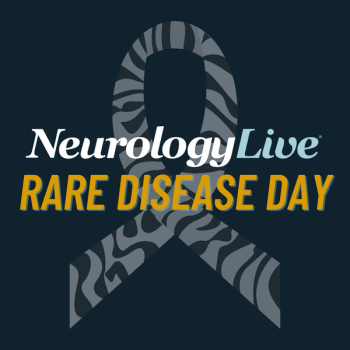
Test your neurology knowledge with NeurologyLive®'s weekly quiz series, featuring questions on a variety of clinical and historical neurology topics. This week's topic is optic neuritis and neuromyelitis optica spectrum disorder (NMOSD).

Abby Reinhard, Assistant Editor for NeurologyLive, has covered medical news for MJH Life Sciences, NeurologyLive’s parent company, since 2021. Email her at [email protected]

Test your neurology knowledge with NeurologyLive®'s weekly quiz series, featuring questions on a variety of clinical and historical neurology topics. This week's topic is optic neuritis and neuromyelitis optica spectrum disorder (NMOSD).

Future research is required to include EEG analyses of neurodiverse patient populations.

Updates from the open-label, delayed-start period of the pivotal 2-part MOXIe trial (NCT02255435) support previous positive primary end points findings from part 2 of the study.

Investigators compared the effect of cognitive behavior therapy for insomnia alone, continuous positive airway pressure alone, and combined treatment.

Data may be useful when analyzing disease progression and treatment efficacy in future facioscapulohumeral muscular dystrophy clinical trials.

The treatment was well tolerated at 48 weeks in patients with DMD with a confirmed mutation amenable to exon 45 skipping.

Speaking on his own presentation on economic burden in MS, Bruce Bebo, PhD, further shared his thoughts on areas of unmet need and the potential relationship of Epstein-Barr virus and MS.

Test your neurology knowledge with NeurologyLive®'s weekly quiz series, featuring questions on a variety of clinical and historical neurology topics. This week's topic is sleep disorders.

A systematic literature review of randomized controlled trials in neuromyelitis optica spectrum disorder was performed, with 7 studies identified and 2 used in analyses.

Investigators noted the long-term cost-effectiveness and safety of this approach, as it does not require the regular use of disease-modifying therapies.

The study had a goal to provide a personalized treatment approach, including ASM dosage changes to prevent seizure worsening and optimizing the balance of outcomes for mothers and children.

Data from the 24-week, multicenter LibraTN trial are expected to be reported in the first half of 2024.

Bruce Bebo, PhD, outlined findings from a recent analysis presented at ACTRIMS Forum 2022, with investigators concluding costs associated with the disease have previously been underestimated.

The cohort study was conducted in Taiwan, with investigators also observing changes over time in the influence of sex, stroke type, and copayment exemption type of rehabilitation utilization.

Data provide an update to the post-approval safety profile of cladribine tablets in patients with relapsing MS in reference to COVID-19 infections.

Investigators also found that this association was particularly pronounced among those living in nursing homes, as well as in Asian, Black, and Hispanic populations.

With the Parkinson’s Foundation recently being granted Joint Accreditation and announcing a new and free CME course, James Beck, PhD, senior vice president and chief scientific officer of the organization, commented on the pivotal role genetic testing can play.

Previously reported data show patients with multiple sclerosis treated with anti-CD20s have reduced response to COVID-19 vaccines, but there has been limited research on MS outcomes among vaccinated patients.

Test your neurology knowledge with NeurologyLive®'s weekly quiz series, featuring questions on a variety of clinical and historical neurology topics. This week's topic is nutrition in multiple sclerosis.

Data were analyzed from the AFFINITY study cohort, which included men and women recruited within 2 weeks of stroke onset in Australia, New Zealand, and Vietnam.

Results from the preliminary study investigating the safety of the ketogenic diet for patients with MS were announced ahead of the AAN Annual Meeting in April 2022.

The treatment is being developed as a first-in-class regenerative therapy for those with AD and dementia, with these safety data offering support to its development.

Investigators noted the need for more transformational treatments to improve disability for patients with both primary and secondary progressive multiple sclerosis.

Data suggest that there is a greater cognitive benefit for patients with higher levels of baseline neurological disability treated with the training and transcranial direct current stimulation.

The study found that all COVID-19 cases were mild to moderate in severity, and all enrolled patients recovered and remained in the study.

Investigators utilized a novel method to accurately capture spinal cord area at C1 vertebral level from legacy brain MRI scans.

In recognition of Rare Disease Day, the NeurologyLive® team offered an extensive update on the state of care and treatment for a wide range of rare neurological diseases, including Kleine-Levin syndrome, amyotrophic lateral sclerosis, cerebral palsy, Lennox-Gastaut syndrome, and more.

Three-year follow-up data presented at the ACTRIMS Forum 2022 suggest cortical lesion burden, particularly subpial lesions, is the primary driver of worsening disability and conversion to secondary progressive MS.

Additional study is required to further investigate the integration of FES cycling into clinical practice for management of SPMS.

Investigators concluded that the Multiple Sclerosis Disease Activity test can assist in monitoring therapeutic response to glatiramer acetate and biologic agents.

Published: October 27th 2021 | Updated:

Published: October 10th 2021 | Updated:

Published: February 23rd 2022 | Updated:

Published: August 3rd 2021 | Updated:

Published: August 5th 2021 | Updated:

Published: September 28th 2021 | Updated: